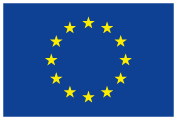________
Courage for Democracy! (workshop and intervention)
Martin Färber, Ruth Mateus-Berr & PoF Collective
23st and 24th of April, 11h00-17h00 at Z33.
Current social, economic, political, governmental and technological responses are too slow to provide answers to the rapid growth and speed of societal changes, not one stone seems to be left upon another. Rapid urbanization, the devasting of rural landscapes, increasing density in cities, structural unsustainability and conflicts over diminishing natural resources, massive explosion of environmental and economic refugees. Design must become politics. We cannot further rely on governments and society. Unexpected change appears on the agenda. We have lost our courage like someone who lost his glasses.
The philosopher Cynthia Fleury argues for the recapture of the core virtue of democracy: Courage. The Italian philosopher Giorgio Agamben believes that “the true courage is not to imagine an alternative, but to accept the consequences of the fact that there is no clearly discernible alternative: the dream of an alternative is a sign of theoretical cowardice and the true courage is to admit that the light at the end of the tunnel is most likely the headlights of another train approaching us from the opposite direction”. Our workshop and interventions will therefore deal with the topic of courage.
More info? Send an e-mail to martin.faerber@uni-ak.ac.at
________
Designing for a city of lies (workshop and intervention)
Søren Rosenbak & Saba Gholcher
24th of April, 10h00-17h00 at Z33.
The future is urban and laced with technology. This is the conclusion across a vast array of reports, future studies and political agendas. Much design and architecture is preoccupied with tracing out the urban life of the future, asking what the city could become. This 2-day workshop, running as part of the TRADERS Open School in Hasselt April 21-30, poses a different question by taking a step back and asking: what is the city? To connect the two questions, one could ask: When we speculate and make designed proposals for the future urban life, on what basis do we then formulate these future visions? In an urban landscape characterised by rapid growth and development, it becomes increasingly important to trace the imaginaries–not only of architects, designers, urban planners, and politicians–but of the citizens. Considering the highly limited data set we’re currently using to assert a city as being “smart”, one can wonder what “bad data”/noise/irrelevance exists outside this narrow lens? What is it we’re not even trying to tap into?
This workshop is about using design to critically explore this question through public interventions and group work. We’ll be tapping into the imaginaries of the city and its citizens through asking citizens to tell us lies about their city. We’ll be mapping out and designing within a negative space, namely one created by the lies of the city, as told by its citizens (opposed to “positive data” such as face tracking, or traffic monitoring). And finally, we’ll be feeding a designed response back to the city.
More info? Send an email to soren.rosenbak@umu.se.


